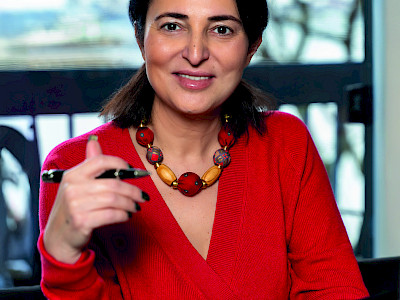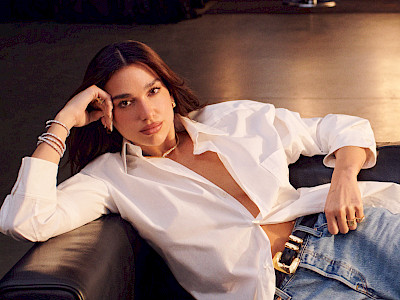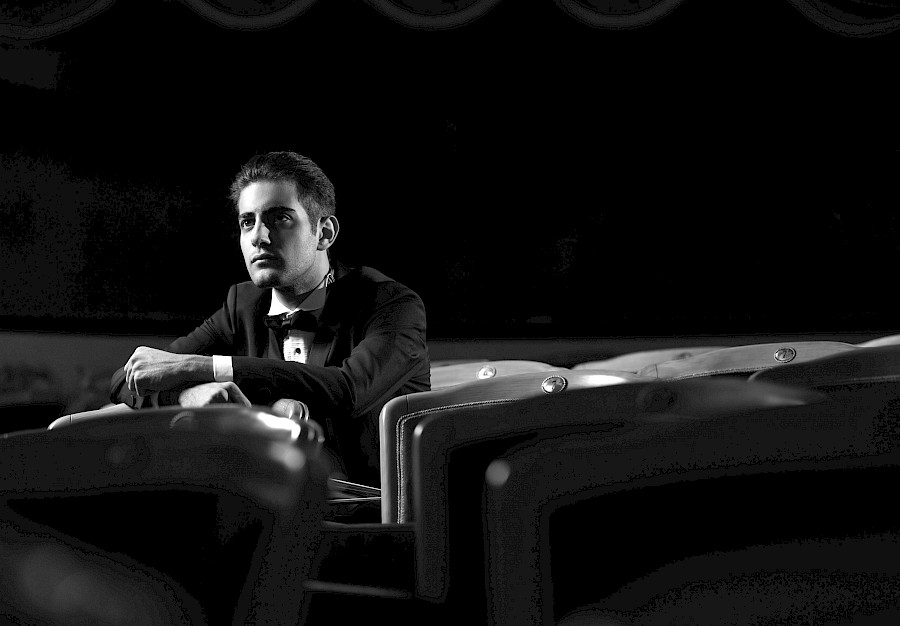
You can look at an inanimate object for a long time and not feel anything at all. Until it speaks. Those who can revive these objects are the most real magicians: they allow us to look at the world differently, expand our range of emotions, locked in the back streets of our soul... This is how Elvin Khoja Ganiyev, who became the youngest artist in the entire history of the Republic of Azerbaijan, is a living violinist who has invested all of himself in becoming a worthy successor to the work of his grandfather, people's artist Sarvar Ganiyev, revives his magic instrument – the violin. Last year, Elvin won the gold medal at the II International Violin Competition in Berlin, which was attended by performers from around the world who were aged 18 to 35 years old. What is it like to study at the age of twenty from Zakhar Bron himself, travel around Europe with concert programs, get an education in Zurich, then in Madrid and at the same time stay in the soul of a simple Azerbaijani guy? Elvin Ganiev himself will tell us about all this.
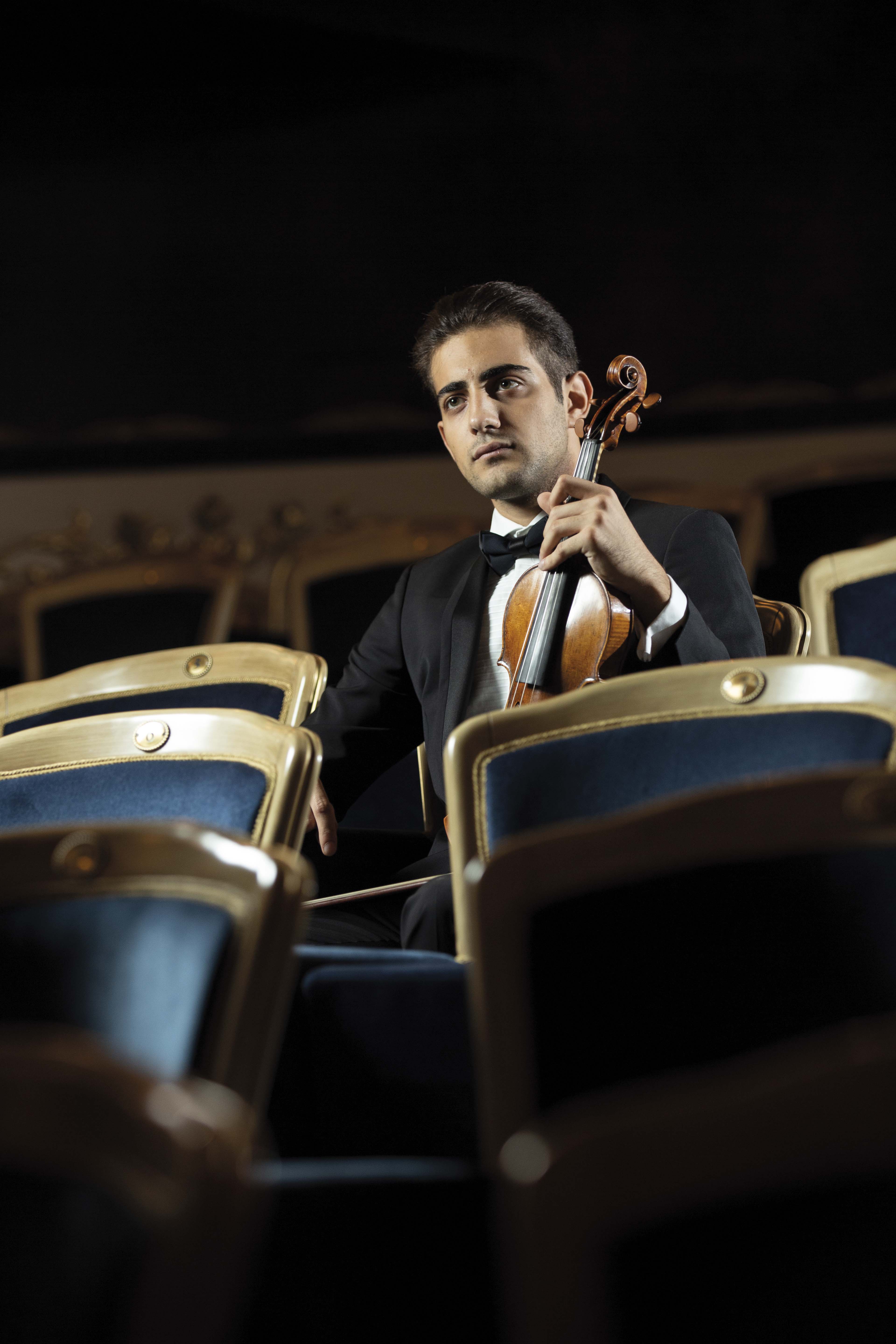
GOOD VIOLINIST
Sostenuto (discreetly)
It is difficult to give yourself a positive assessment, knowing your flaws, and somehow immodest it is to praise yourself. But with all this, I believe that I am a good violinist, a concert musician with a high level of performance, which is proven not only by awards, but also of how the public meet and accompany me in different countries where I happened to perform. After 18 years, no one regards you as a young talent: you find yourself on a step where your age doesn't matter. You are expected to either have a high-quality performance that can compete with a game of musicians older than you by ten, twenty, or even more years – either drop this business. I know about my potential, but I do not see its limits. You can’t put up with your flaws. You need to make out them in yourself and try to change for the better. I think it is important to constantly work on yourself.
NOT ONLY A MUSICIAN
Risoluto (decidedly)
Parents categorically did not want to see me as a musician. The reasons are simple: hard work, it is difficult to gain support in the world of classical music and so on. Paradoxically, in our family everybody is a musician: father – cellist, mother and grandmother – pianists, grandfather and sister – violinists. By the age of five I was singing melodies of various works, imitating the movements of the conductor’s hands. As a result, the family council decided to test if I had an ear for music, without being guided by the goal of making a musician out of me. "I will not let him carry this huge cello on himself!" said grandmother, so my father was forced to give way to my grandfather, and they gave me my first violin. By that time, my grandfather was a People's Artist of the Republic of Azerbaijan, in 1986-1987 he founded in Ankara, perhaps the strongest violin school in Turkey at that time. There I began my studies. By the age of seven, I performed my first concert. There were a lot of positive reviews, and I was madly in love with the scene. It was decided – I will become a musician!
MY IDEAL
Morendo (fading away)
Shortly before his death, in 2010, my grandfather found out that I became the winner of the prestigious Wieniawski competition. "How good that I saw it! I didn’t have enough time, but Elvin will certainly glorify the Azerbaijani violin school, he said then. My very first performance with the orchestra was with my grandfather. I still remember the indescribable feeling of pride, I would even say, a kind of security on stage. I performed not just with the greatest musician Sarvar Ganiev, but with my beloved grandfather, next to whom I experienced the widest range of emotions. I did not even feel the excitement. I consider grandfather to be my ideal not only because he went through a difficult path before becoming a stunning musician and teacher. After all, he had neither support, nor those opportunities, like mine. He was a man with a capital letter, he always helped his students, supported talents, took care of those in need... And I dream, like my grandfather, to achieve all the heights in his profession, to establish schools and conservatories, to breathe new life into the Azerbaijani violin school!
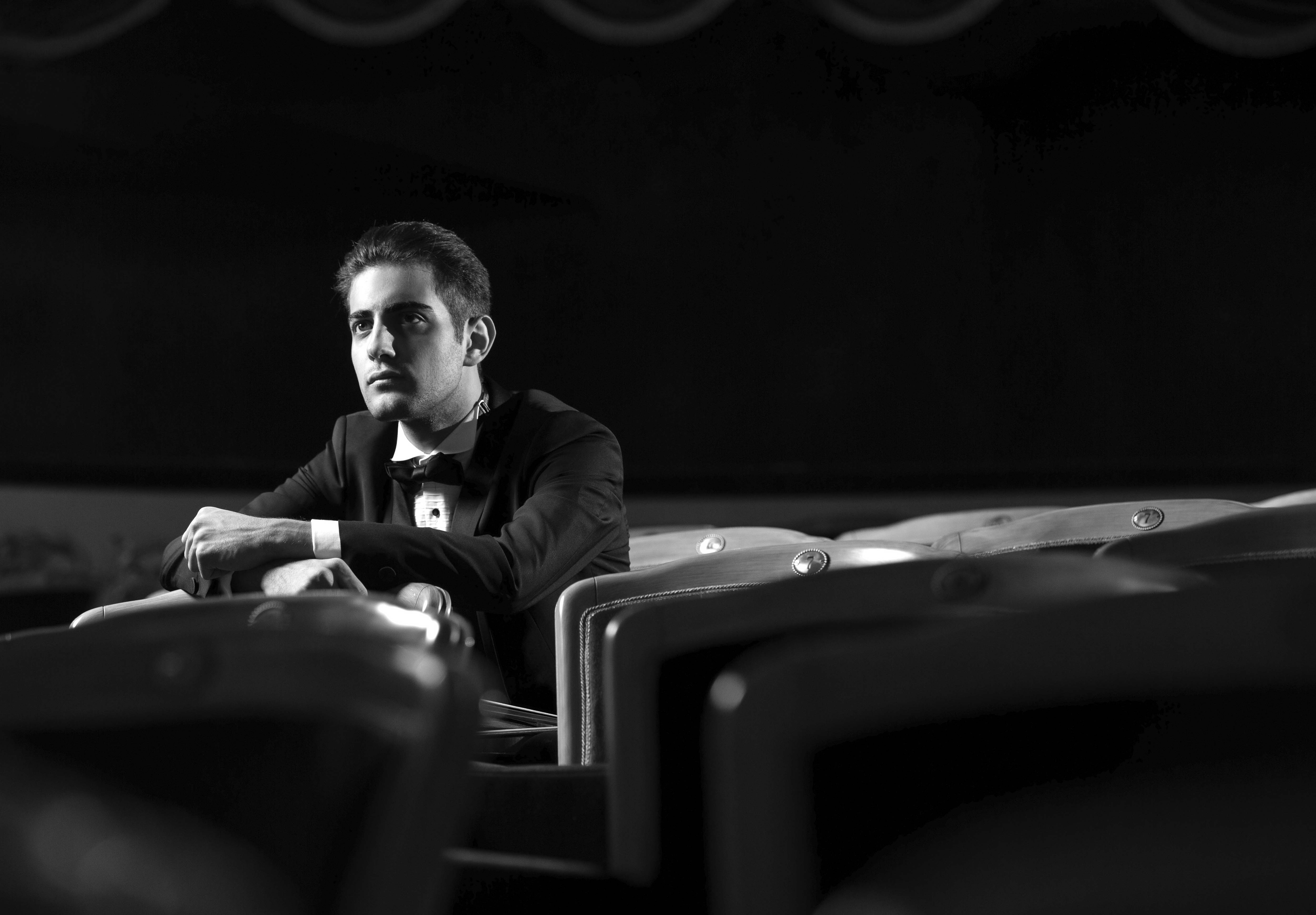
THE YOUNGEST
Animato (enthusiastically)
Perhaps the most important award for me today is the title of Honored Artist of Azerbaijan, which has become for me not only the highest appreciation of my achievements for today, but also an additional motivation for the future. I deserved this title in my twenty years or not – it’s not for me to judge. Already at the age of eight, I became the laureate of several serious music competitions, they knew about me not only in Turkey, but also in Azerbaijan. Thus, academician Nargiz khanum Pashayeva invited me, a nine-year-old violinist, to perform on the Azerbaijani stage for the first time at the UNS Theater. Since then, I have felt guardianship from the top officials of the state, in particular, Vice President Mehriban khanum Aliyeva. And help was needed! Without material support, so many talented musicians disappear. All these trips abroad, master classes, and performances were very expensive for my family; my parents invested the last money in my musical career. And their efforts were not in vain – my name was entered into the golden book of the talents of Azerbaijan, and I proudly represented our country at competitions and festivals in different parts of the world.
FAITHFULNESS
Affettuose (heartily)
At one of the workshops in Kazakhstan, where I went with my grandfather, I had the honor to meet the famous teacher Zakhar Bron, who brought up a galaxy of the best violinists in the world. He listened to my performance and congratulated grandfather, predicting a great future for me. And then, as if in a dream, Zakhar Bron himself invited me to become his student! Once a month I went to see him in Zurich, in Milan, and at times in Kern, and received his invaluable lessons. Not everyone can become a student of such an outstanding musician. I was happy. I continued traveling around in competitions, performed on stages I could only dream of earlier, and started receiving offers from famous teachers in Europe and Russia to become their pupil. It might be interesting, but I remain loyal to Zakhar Bron.
HARD
Spirituoso (spiritually)
The most difficult part in competitions is by no means the preparation process, when you rehearse for hours, refreshing your corns on your fingers, and do not even have the ability to cope with emotions at the time of the performance. Sometimes the political aspects are crucial, and even the presence on the jury of teachers or even relatives of the participants. A good performer without acquaintances on the jury has every chance to be left behind after the first round. It is very difficult to prove oneself in such situations. But there are fair competitions: I can mention the Queen Elizabeth or Tchaikovsky Competition, when only thirty violinists are invited to perform before the jury, selected from ten thousand who sent their videos.Rely on the fact that someone is out of tune, it's silly. Here the approach, the soul, the ability to open and show the work in a new reading is important, while not going beyond the scope of what is written in a musical notebook. After all, classical music is not jazz, improvisation is unacceptable. I personally try not to participate in competitions, where the jury has friends of my parents. Yes, I grew up in a family of musicians; perhaps, if someone else was in my place, the success would be the same, you think, and most likely you will be right. The family really guided me, supported me, shared my experience, helped me with advice. However, on the stage of, say, a contest in New York, you are left face to face with a violin, in front of a professional jury that does not care about your parents or grandfather. And if you spent six hours a day on rehearsals, practicing every sound, putting all your energy into the performance, then you will feel how even the largest stage turns into a cozy corner in which you are the sole owner. Close your eyes, run your bow across the strings... and there is no strict jury in front of you, no excitement inside you – one music, only emotions! And suddenly everything is interrupted by a flurry of applause, and you rejoice with pride in yourself! It's fine!
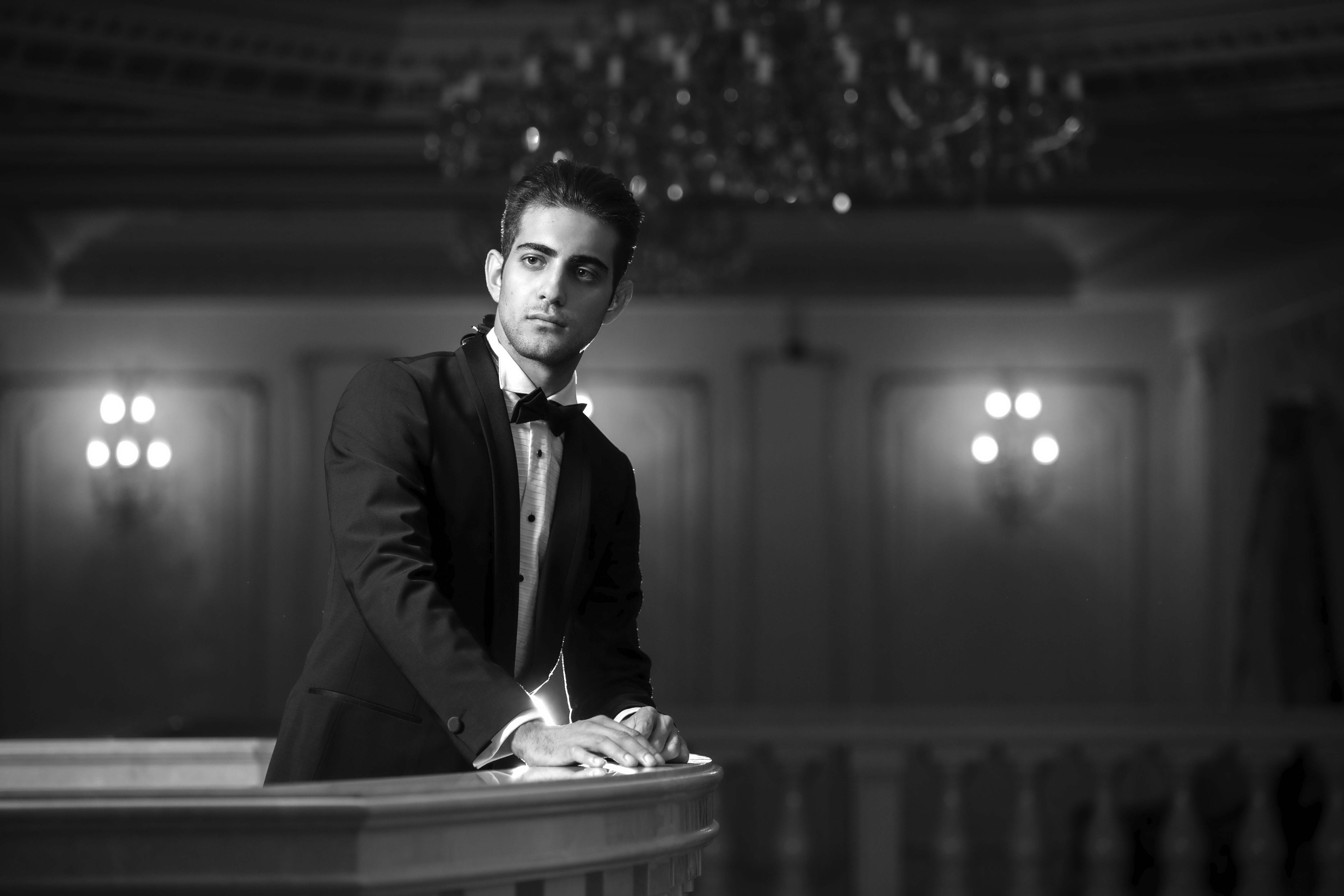
IMPORTANT
Parlando (speaking)
Often parents, having noticed a talent in their child, want to see him at least like a Mozart. I saw behind the scenes how some mothers beat their children for the falsehood allowed during the performance at the competition. As a result, musicians who essentially hate their profession often grow out of these children, but it’s hard for them to quit this lesson, because they don’t know anything else but to play a musical instrument. They were never instilled with a love of music, of an instrument. But this is so important! Yes, high art requires sacrifice. But they can be minimized, believe me, you just need to find the right approach. In no case should a child discover the notes of a work that exceeds his ability to understand the world around him. If you have already decided to let him learn a work, say, of Tchaikovsky, then please be kind enough to devote enough time to explain it, teach the child to empathize with each note that skips between the five lines – let him let through all the shades of sounds... Of course, he does not feel them as an adult, but he will understand in his own way and, perhaps, will betray what they will call a new reading. Children's vision of music is often not professional, but sometimes it can surprise even the most elderly musician, who hears, it would seem, everything.
HOURS WITHOUT A VIOLIN
Leggiero (easy)
Sometimes you rehearse for four hours and seem to feel the strength in yourself for the same amount, but your attention is no longer concentrated. The body is able to give strength to play for 12 hours, but it will serve rather to the detriment, because concentration is very important when learning a work. At such hours, I put the violin in its case and can go for a walk. I am a pretty social, sociable person. I have many friends, I like to spend time with them, play chess. Since childhood, no one could force me to do anything, I was very moody. However, I never missed violin classes – in spite of my early age, the goal of becoming a musician was my conscious choice. True, at first the presence on the stage was more attractive. In childhood, the daily schedule mainly included several hours of rehearsal for the violin, and then, despite my mother’s protests, there was a game of football with the boys in the yard, and again, music. I madly love theater, even more than cinema. I don’t know if I have acting talent, but if I were born in a family of theatrical figures, I probably would have become an actor in the theater.
SUCH LOVE
Giocoso (playfully)
Unlike others, I have a tension in relations with a girl... Johann Sebastian Bach. The fact is that the way you perform Bach is an indicator of your professionalism, but at the same time, musicians from different schools and even countries perform it in completely different ways. My girlfriend is also a violinist, and we are always arguing with her about how to nevertheless correctly perform his works. In general, it’s important for me that a person who is ready to share my destiny with me understands what I do in life – I don’t even care about his attitude to classical music, only understanding is important. In addition, being constantly on the road, it’s hard to give someone enough attention. I don’t think about a stable life – there is still so much to do and achieve!

ALIVE, BUT NOT A PERSON
Sensibile (sensitively)
I can talk with her, share my ideas, ask not to let her down, because I definitely won’t let her down!.. Sometimes I even feel that she is offended when I rehearse a little because I’m busy with flights or filming. I play on different violins, one of which was even presented to me by Mehriban Aliyeva – works by Gennaro Galliano. At the moment I play the violin of Giuseppe Guarneri. For each violin I have a special approach, as if to a person. But, in spite of such a parallel, communication with people, of course, I put above. Because conversations with the instrument take place in my head, and I will not hear answers to my questions, but I value reality in everything. Maybe, due to youthful maximalism or my extrovert nature, I will never exchange communication with a living person for endless conversations with musical instruments!
Interview by Farid Mammadov Photo by Parviz Gasimzadeh


